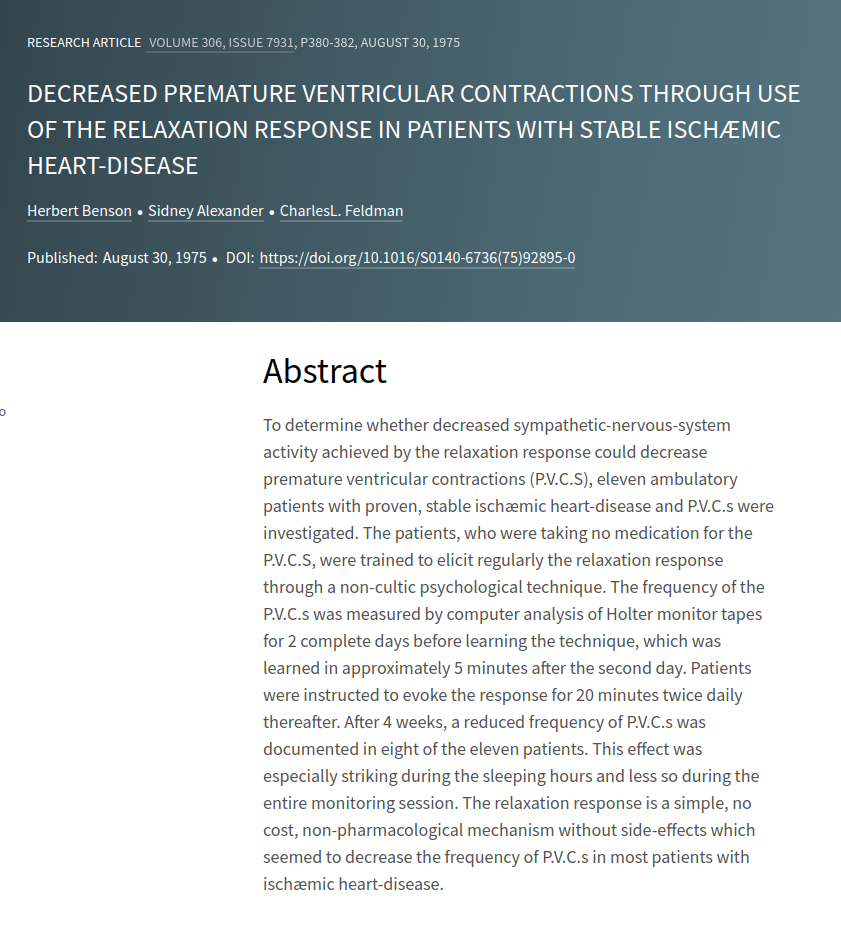To determine whether decreased sympathetic-nervous-system activity achieved by the relaxation response could decrease premature ventricular contractions (P.V.C.S), eleven ambulatory patients with proven, stable ischæmic heart-disease and P.V.C.s were investigated. The patients, who were taking no medication for the P.V.C.S, were trained to elicit regularly the relaxation response through a non-cultic psychological technique. The frequency of the P.V.C.s was measured by computer analysis of Holter monitor tapes for 2 complete days before learning the technique, which was learned in approximately 5 minutes after the second day. Patients were instructed to evoke the response for 20 minutes twice daily thereafter. After 4 weeks, a reduced frequency of P.V.C.s was documented in eight of the eleven patients. This effect was especially striking during the sleeping hours and less so during the entire monitoring session. The relaxation response is a simple, no cost, non-pharmacological mechanism without side-effects which seemed to decrease the frequency of P.V.C.s in most patients with ischæmic heart-disease.
Decreased Premature Ventricular Contractions Through Use of the Relaxation Response in Patients with Stable Ischemic Heart-Disease
Publication
The Lancet
306(7931), p. 380-382
Abstract
Web and Email Links
Related Listings
Journal
Behavioral Medicine
This article describes the validation of an Inventory of Positive Psychological Attitudes that has potential relevance to health outcomes and its preliminary testing with chronic pain patients. The inventory taps two attitudinal domains: (1) life purpose and satisfaction and (2) self-confidence during potentially stressful situations. It also provides a total score. The inventory scales, developed using factor analysis, were found to have a strong degree of internal reliability and co […]
Journal
Biofeedback and Self-regulation
The purpose of this study was to assess the central nervous system effects of the relaxation response (RR) in novice subjects using a controlled, within- subjects design and topographic EEG mapping as the dependent measure. Twenty subjects listened to a RR and control audiotape presented in a counterbalanced order while EEG was recorded from 14 scalp locations. The RR condition produced greater (p < .0164) reductions in frontal EEG beta activity relative to the control condition. N […]
Journal
Behavior Modification
Sleep latency changes following behavioral interventions for sleep-onset insomnia are only moderate because the majority of insomniacs do not achieve good sleeper status at posttreatment. This study evaluated the efficacy of a multifactor behavioral intervention consisting of stimulus control and relaxation-response training (n = 10) compared to stimulus control alone (n = 10) for sleep-onset insomnia. Only the multifactor subjects' mean posttest sleep latency fell within the good sle […]

